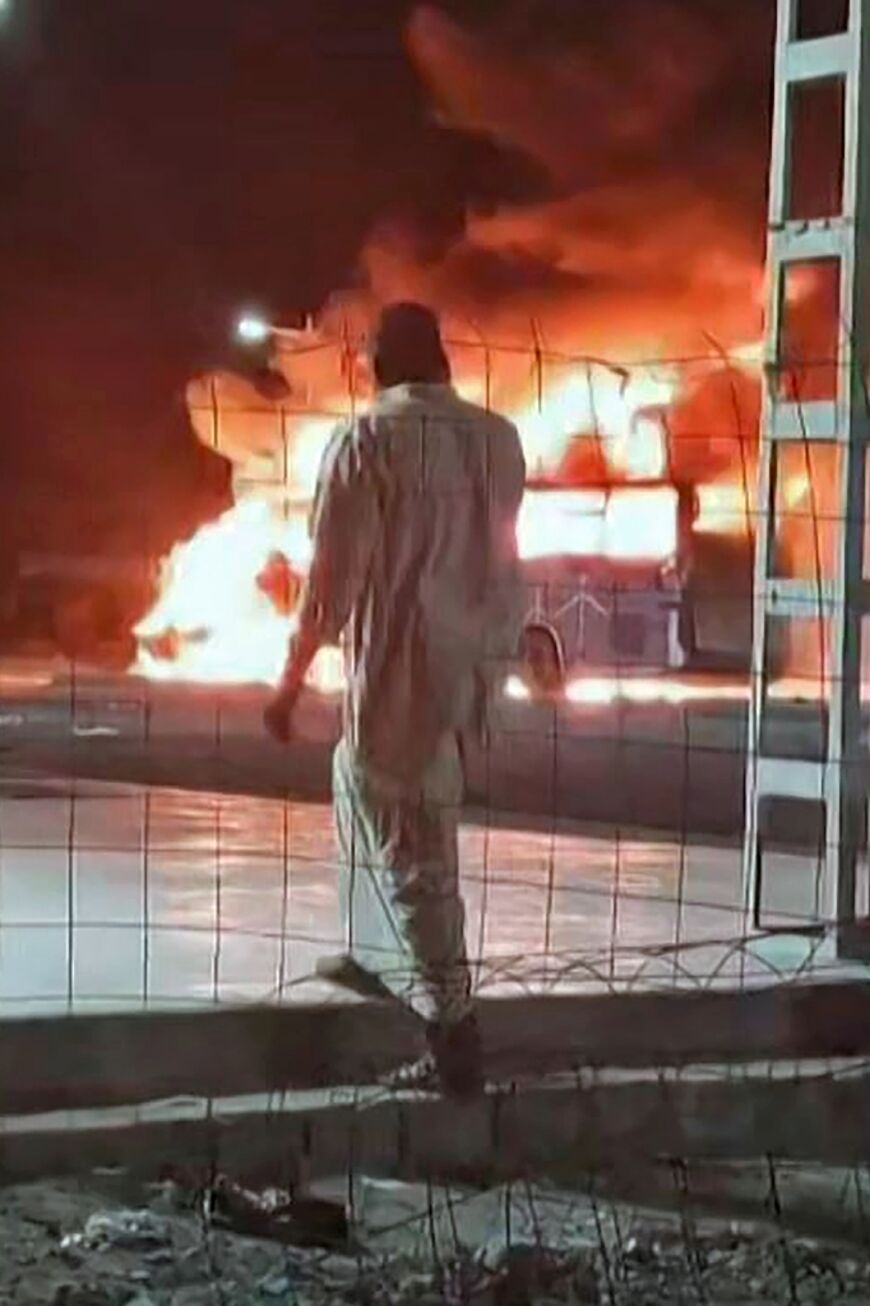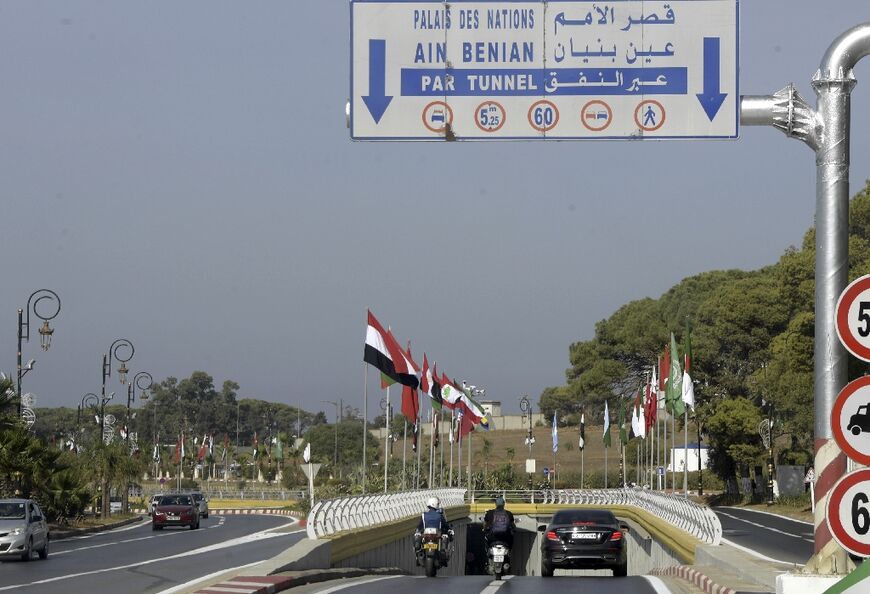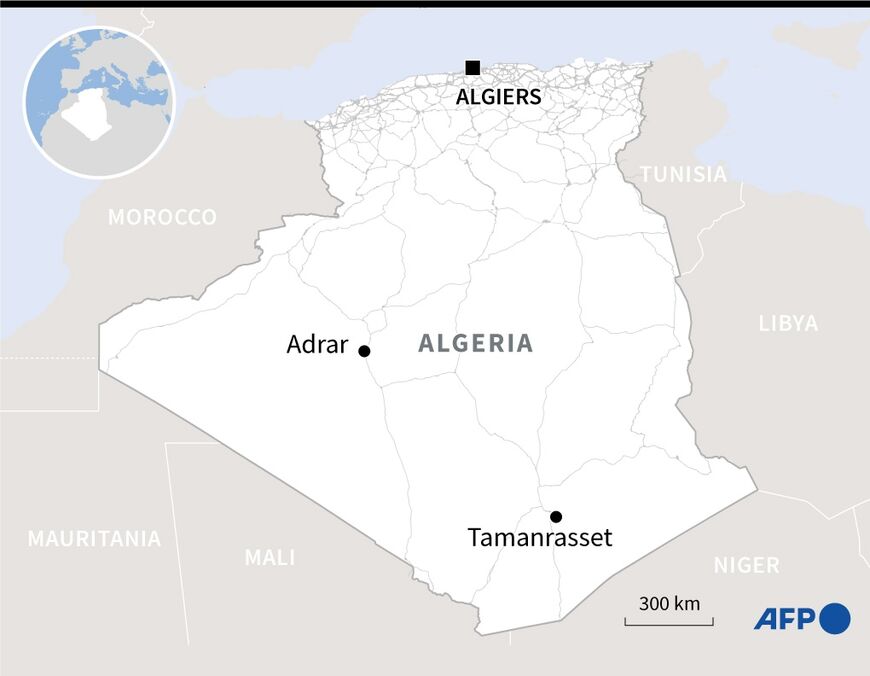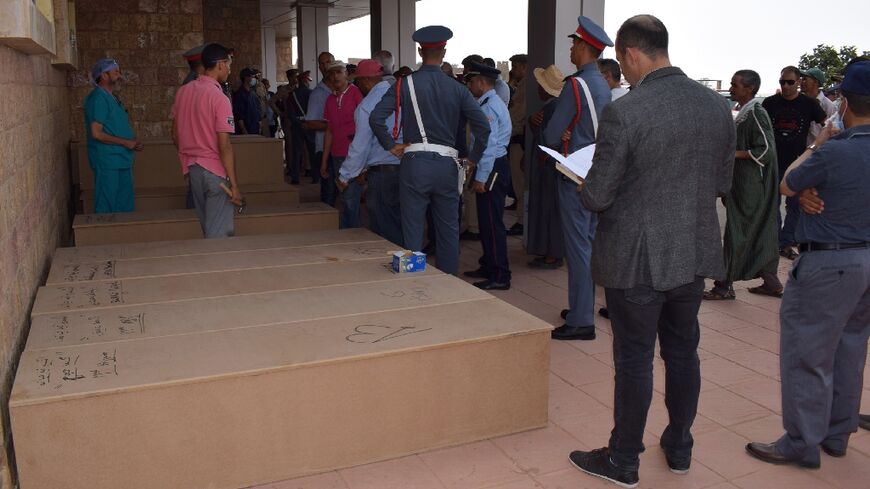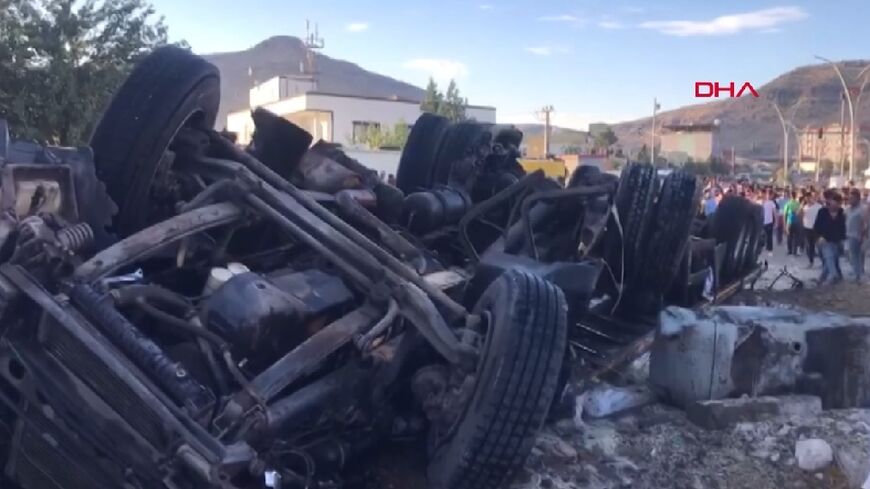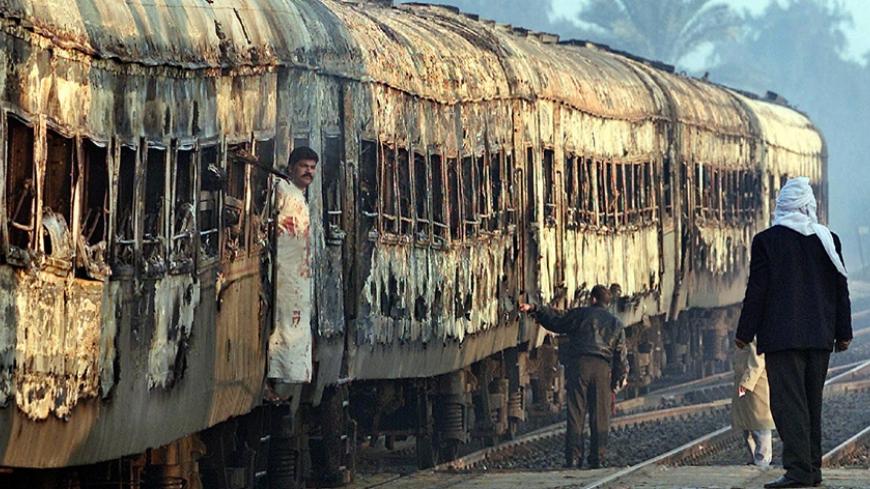Fiery bus crash kills 34 in Algeria's remote Sahara region

A road crash in Algeria killed 34 people when a passenger bus collided head-on with a pickup truck carrying fuel cans and burst into flames Wednesday, deep in the southern Sahara region, officials said.
The North African country's deadliest road crash in years also left 12 others injured, many with severe burns, Algeria's civil defence agency said.
President Abdelmadjid Tebboune, on a state visit to China, expressed "his deep distress and sadness" and offered "his sincere condolences" to the victims' families.
Pictures showed the bus engulfed in a massive ball of flames that lit up the pre-dawn sky after the crash around 4:00 am (0300 GMT) in a small town near Tamanrasset, a 2,000-kilometre (1,250 mile) drive south from the capital Algiers.
Later, rescue workers were seen recovering bodies from the mangled and charred hull of the bus in Outoul, 20 kilometres west of Tamanrasset, the accident scene surrounded by fire engines.
Local residents told AFP by phone that the bus had dropped off passengers and was about to resume its journey when a Toyota pickup truck smashed into it.
National gendarmerie official Samir Bouchehit said the truck was carrying cans of gasoline and driving on the wrong side of the road.
"The first elements of the investigation suggest that the responsibility lies with the driver of the pickup, which was loaded with cans of gasoline that caught fire in the collision," he said, speaking on the private Ennahar TV channel.
The number of passengers in the pickup was not clear but they -- and the driver -- were killed, Bouchehit added.
Residents said the bus driver also perished.
- Highway deaths -
Health Minister Abdelhak Saihi travelled to the accident site, promising "all the necessary measures for the care of the injured", a ministry statement said.
The civil defence agency said the bus was travelling between Tamanrasset, a town of 150,000 people, and Adrar to the northwest, with about 65,000 residents.
Mohamed Boudraa, the governor of Tamanrasset, visited the local hospital where the 12 injured were being treated, the official APS news agency reported.
Three of them were later released from the hospital, its director Abdelkader Bika told APS.
Officials in Algeria, an oil producer, regularly announce seizures in the Tamanrasset area of large amounts of contraband fuel destined for neighbouring countries.
Algeria recorded nearly 23,000 road accidents in 2022, leaving 3,409 people dead and more than 30,000 injured, according to the country's road safety chief Nacef Abdelhakim.
Speed was the main cause, according to the state road safety agency.
Tamanrasset is a transport hub in the remote desert region for the movement of people and goods from Algeria's far south to the coastal north.
The region, near the borders of Mali and Niger, is also a transit point for migrants from sub-Saharan Africa hoping to reach Europe via Algeria.
In December 2020, a vehicle crash near Tamanrasset killed 20 people and injured 11 others, most of them African migrants.
Other countries in the region also see thousands of road deaths annually.
About 7,000 people lost their lives on the roads of Egypt, the Arab world's most populous country, in 2020, according to official figures.
Sudan recorded around 10,000 annual traffic fatalities between 2016 and 2019, according to the World Health Organization and the World Bank.


